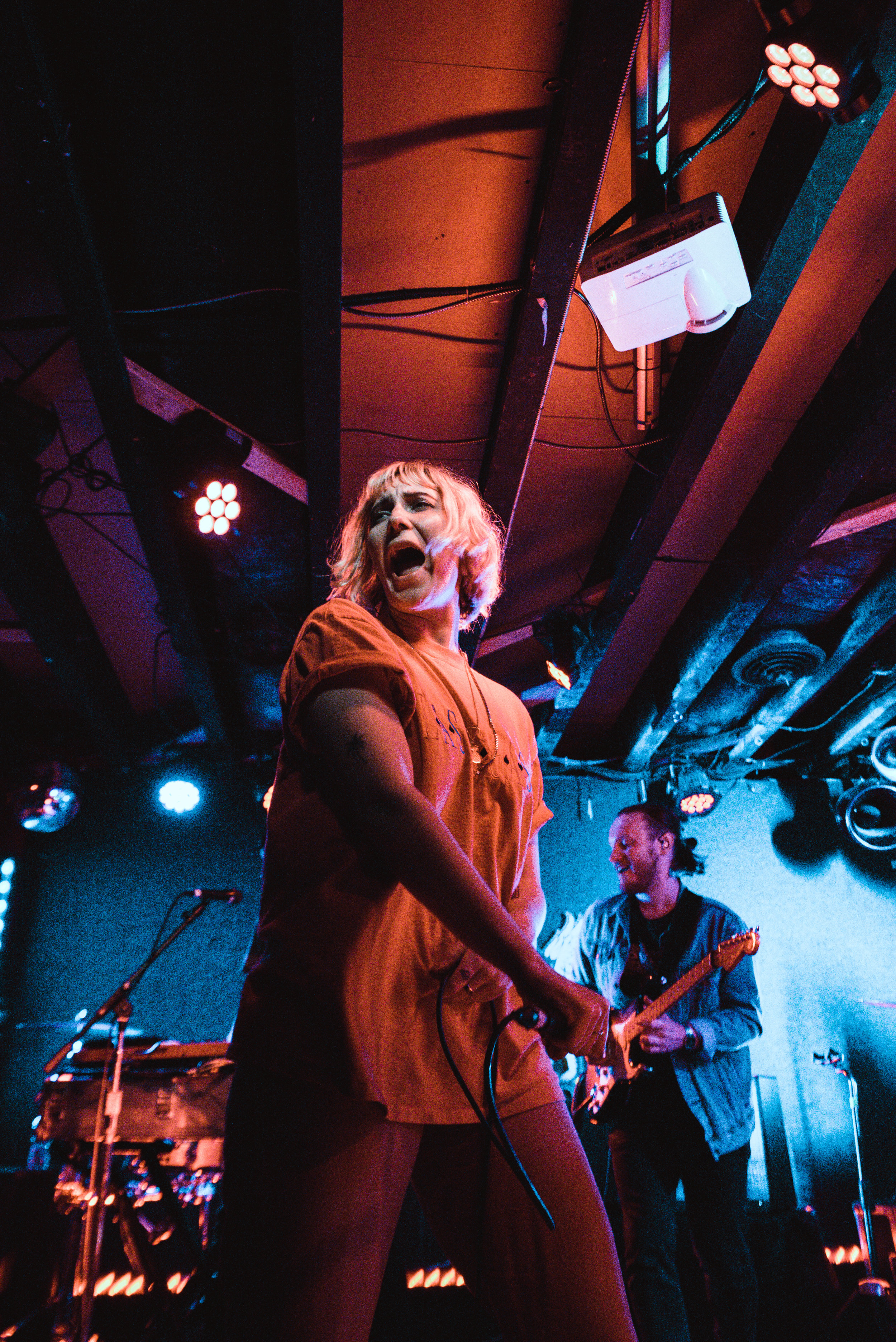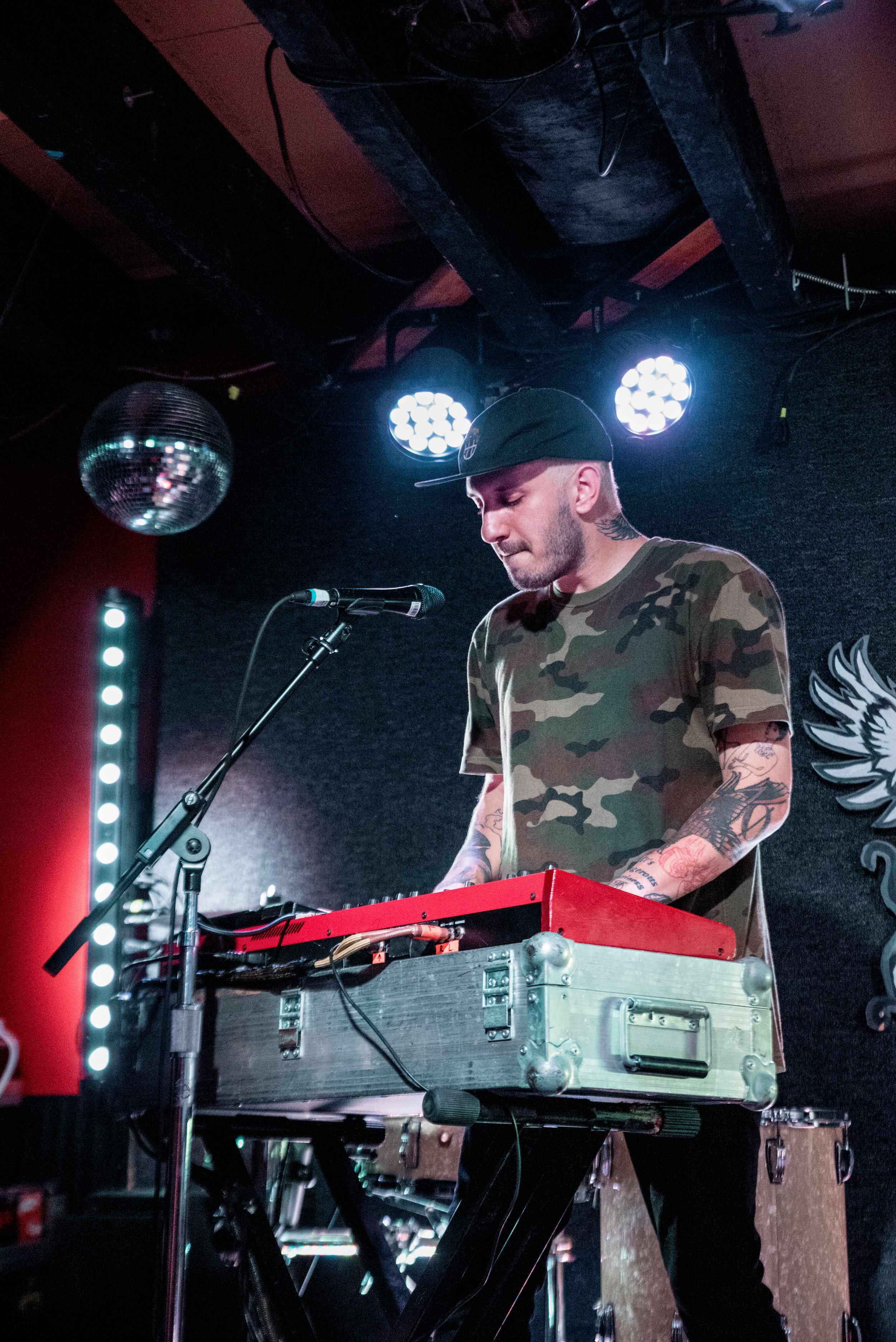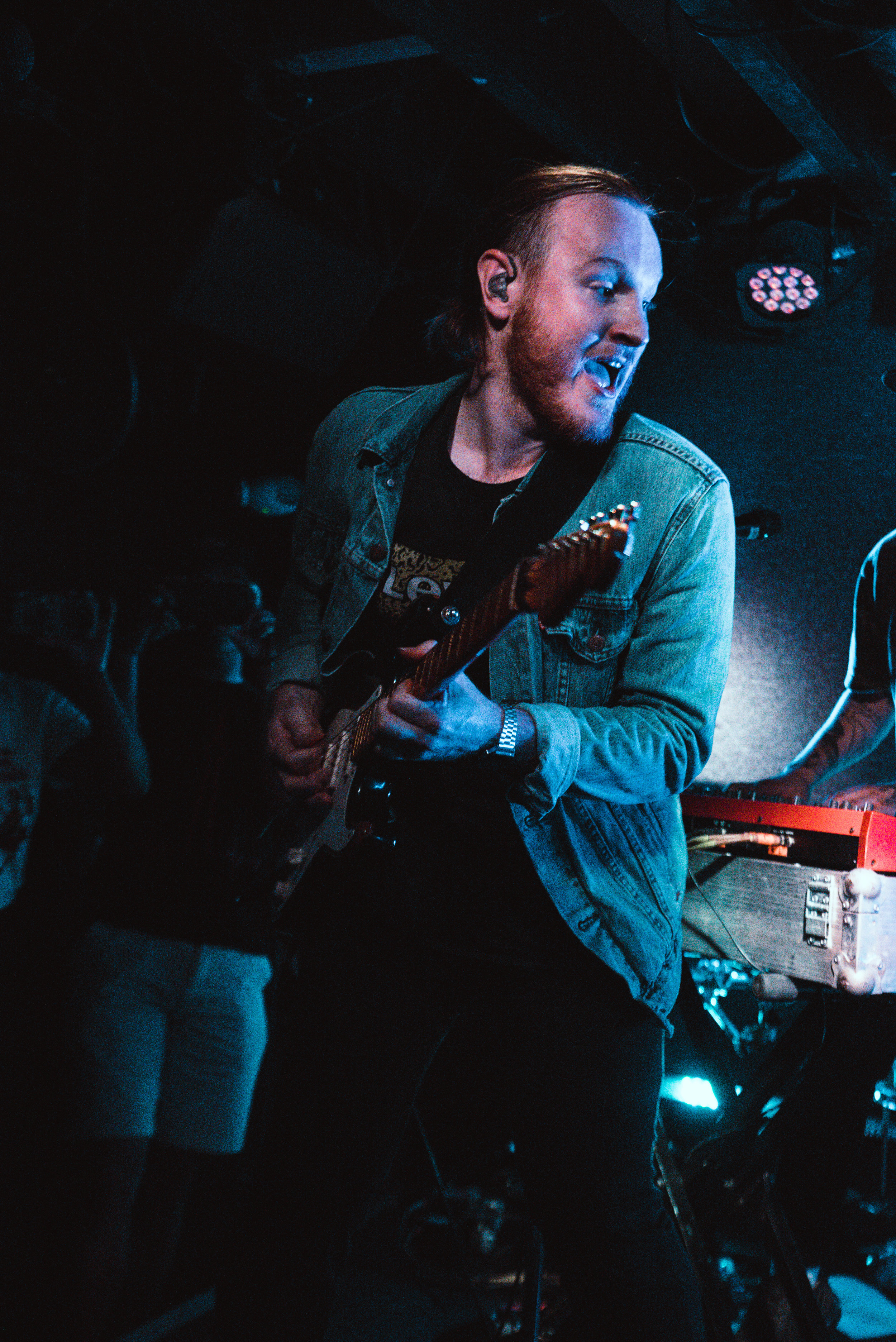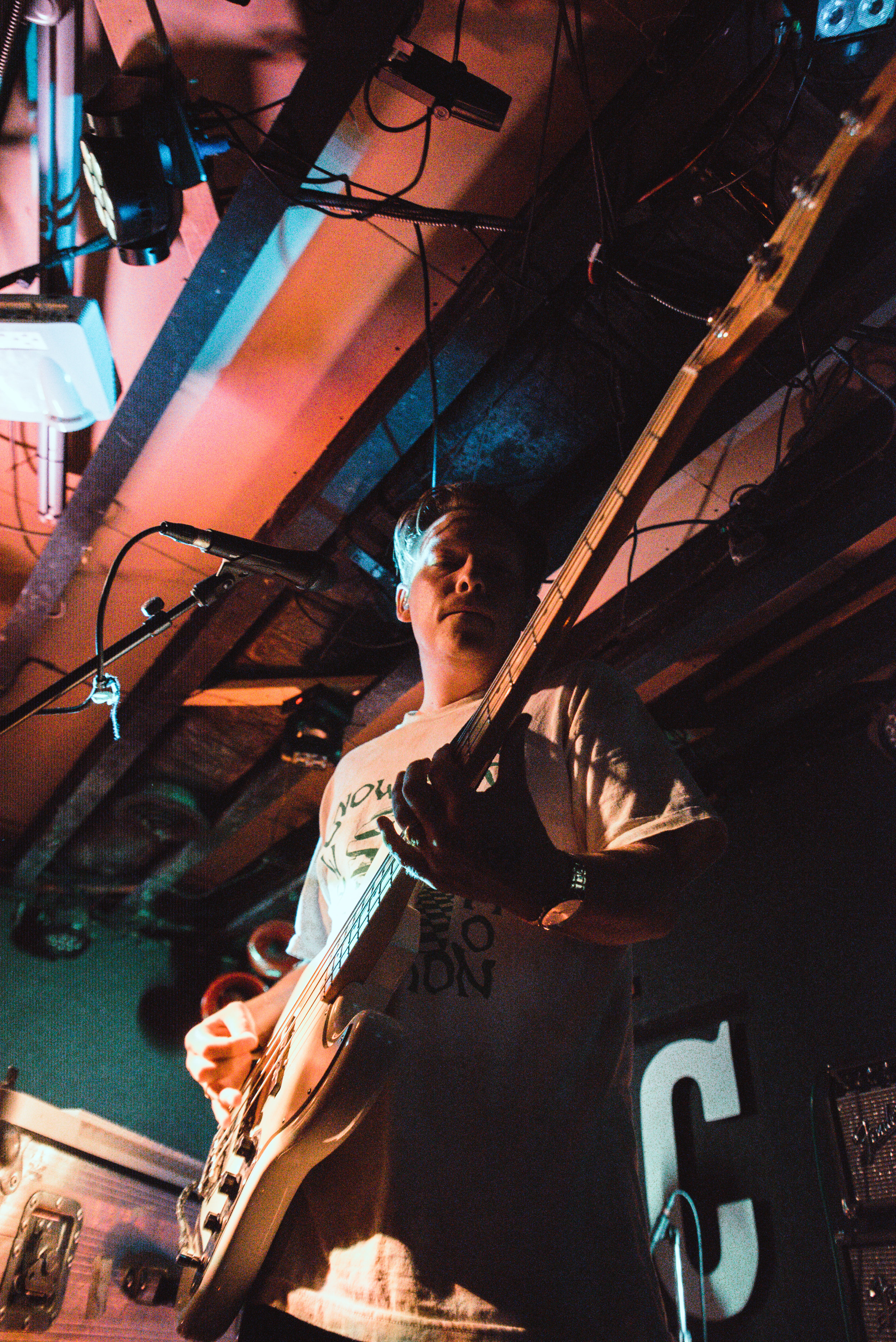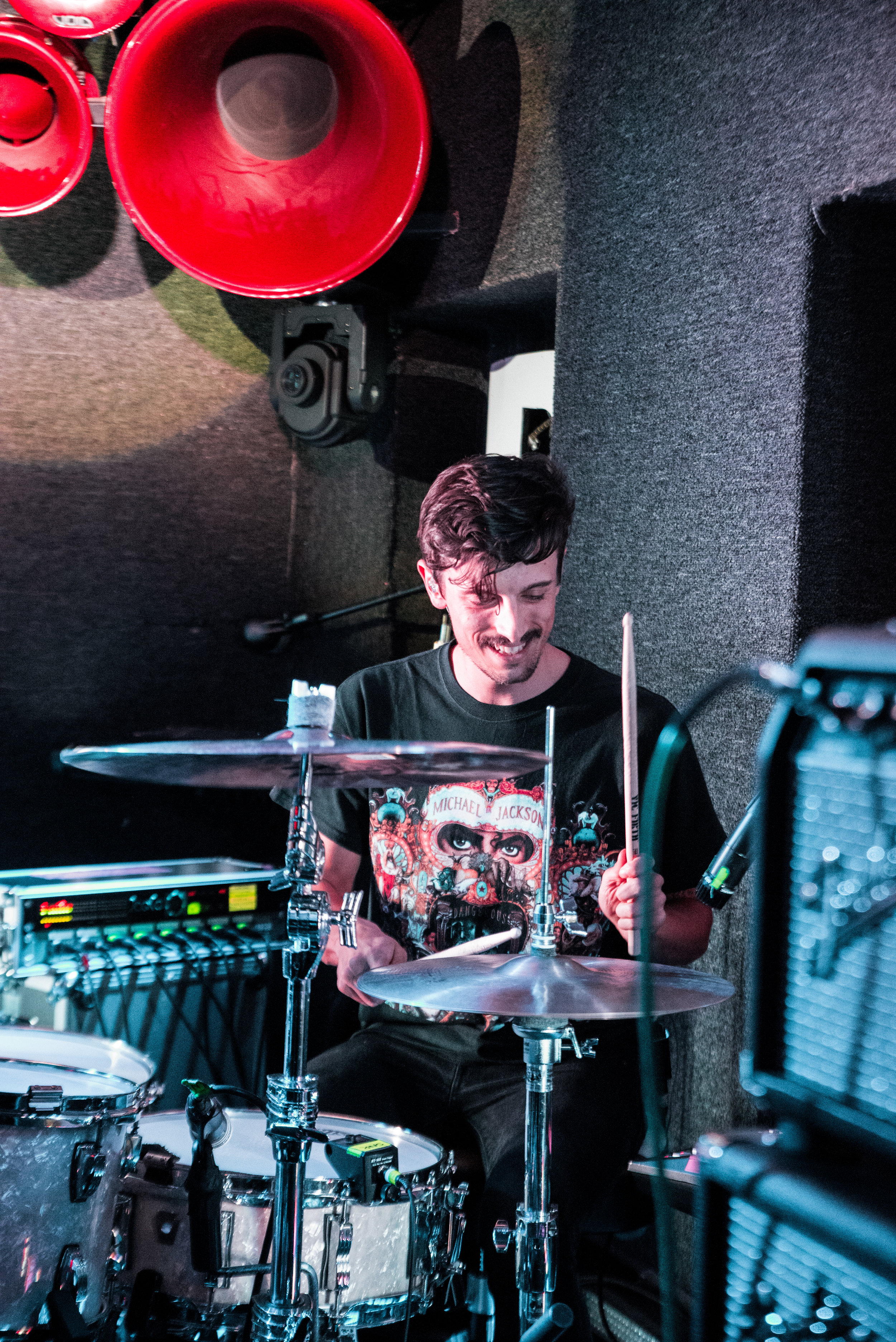Interview: Fickle Friends
Fickle Friends kicked off their Fall U.S. tour with a zesty sold out show at DC9. This exuberant welcome certainly attests to the shimmery waves the band has made with their highly-anticipated debut album, which dropped in the spring. Since the release, Fickle Friends has been lighting up the festival scene, but they’ve also impressively managed to squeeze in time to write new music (a lot of new music) and start a record label. We sat down with lead singer, Natassja Shiner, who discusses what bouncy sounds fans can expect to hear from Fickle Friends’ upcoming EP and how they aspire to build a supportive, creative community for budding musicians using their new label, Palmeira Music.
Capitol Sound DC: You just released a new single “Broken Sleep” and announced that you’re going to drop an EP this Fall. The new EP will be released within the same year as your first album, which took several years to produce. In the EP announcement you mentioned being in a “headspace.” Can you talk us through what this headspace was and how crafting the two records has been different?
Natassja Shiner: With the first album there was so much pressure. We signed a major record deal and we were thrown straight into recording this album that we didn’t really have. They flew us out at to L.A. and we were there for four months. While we were there, it was all really exciting. We wrote loads of music and thought it was so much better and very us. We came back with this weird, half-finished thing and were scrambling to try to finalize it with different people in London. It was just a very stressful period and by the time the album came out and we were like, “Oh my God, it feels so nice to not be stressed all the time.” Writing music almost became a chore, which is so annoying because it’s the one thing I really love. Then suddenly, we were in a free space and realized we had all these other ideas and it’s been really fun.
CSDC: I think a lot of people can relate to the reality that when there’s a deadline, there’s an added level of pressure, and it can sometimes suck the fun out of something you enjoyed doing outside of the commitment itself. So, speaking about all these other ideas, in the picture announcing the new EP there was a section of your whiteboard that was called, “Ideas on the Go.” Do you have criteria for whether you’re going to include a song on the album or not?
NS: I don’t think there are certain criteria. I think when you write a song that you think is great- you know. When we wrote “Broken Sleep,” at the end of the day, we were like, “yeah, this is a good vibe. I like this. This is cool.” Sometimes you finish a song and you sleep on it, then you’re like, “This is not our best.” You just know. Usually it’s gotta have a really killer one-liner chorus or one massive hook. There is no one specific thing. You just feel it and know that’s the one.
Capitol Sound DC: How are you all progressing? Do you have a direction in mind for the next album?
NS: It’s progressing. The EP is definitely more synth-pop than our record, which is still a little indie. You can definitely feel that with songs like “Swim” and “Useless” and “She” – it’s definitely indie pop. With “Broken Sleep” it’s got this weird hybrid of 90’s dance, R&B, and synth-pop. It seems to be going in that direction because Jack’s getting better at production. We’re recording less and less proper live stuff just because it’s so much quicker and easier to record in your bedroom on-the-go and that’s just where the music is going.
CSDC: Because you’ve become more efficient at producing and have this desire to excel at your individual skill-sets, is that part of the motive for creating your new record label (Palmeira Music)?
NS: We had done stuff very DIY before signing to a label and we just wanted to go back to doing that and those roots. It worked for us. We love the challenge of owning the end-to-end process, from making the music to releasing it. Setting up your own label is also just very exciting and it felt like the right thing to do. We all love music so much and thought it would be really cool to start releasing other people’s stuff. It’s a new venture.
CSDC: Do you have any advice for bands that are and aren’t signed on navigating the relationship between label and band?
NS: Being signed isn’t the be-all, end-all. There are other ways that you can release your music without a label and they still offer you loads of support, like Spotify. I know a lot of the time signing to a label can be seen as “making the band,” but it’s totally not, especially if you have a really strong vision for what you’re doing. But major labels can be great if you’re just writing songs and not sure on your overall vision, because they (labels) have teams that are going to help you with crafting your overall brand.
CSDC: Tell me a little bit about why it’s important for your label to be an avenue for you to mentor smaller bands. Did you all have a mentor to advice you through the process?
NS: We didn’t have a mentor and that’s why we want to do it. I compare it to the 1975 and how they mentor Pale Waves, No Rome, and The Japanese House. They’re the people that Matty thought were cool, signed to Dirty Hit, helped them produce some of their music, and took them on tour. Basically, just held their hand through the beginning to give them the momentum they needed, which is awesome. We thought it would be really nice to do that for starting bands and we want to help create that supportive music network.
CSDC: I think fostering that community is super important. Talking about the music industry, in general, “Heartbroken” was about the tension that exists between the love that you have for music and how that love doesn’t always get returned in terms of audience support. How do you stay grounded and authentic to yourself when the things you love are getting criticized? How much do it do you use as feedback to “improve?”
NS: I think people can see when you’re not being true to yourself. There’s a difference between music that you put out for content sake versus music that means something personally. Hopefully, people respond to it because it’s honest. There’s always going to be people that don’t like a certain song, but for all the haters, there are a load of people who love it. I don’t think people realize when they say rude comments, the amount of hours that went into writing and producing a song. I try to ignore it. We write music that we want to write and people can tell. Write music for yourself, not other people, because that’s how you establish a connection between you and the listener. Make the song relatable.
CSDC: “Say No More” is partially inspired by your travels and by experiencing different perspectives. What’s a perspective that you’ve encountered that has surprised you and/or potentially changed how you view the world?
NS: I don’t know if it’s a perspective, but when we played in New York, people are more willing to come speak to you. In London, everyone is very introverted. Everyone we meet over here will come shake your hand and want to take a picture. You get a little bit of that in England, but you kind of have to be the one to ask people if they want a picture and then they’ll be like, “Yeah!” People just seem more open over here. I think people see us as being bigger than we are. They’ll say, “You’re in the charts.” But I think they forget the UK is very small. It’s not like getting in the Billboard charts. But it’s awesome.
Follow Fickle Friends at the links below.
All photos by Raelena Kniff.




